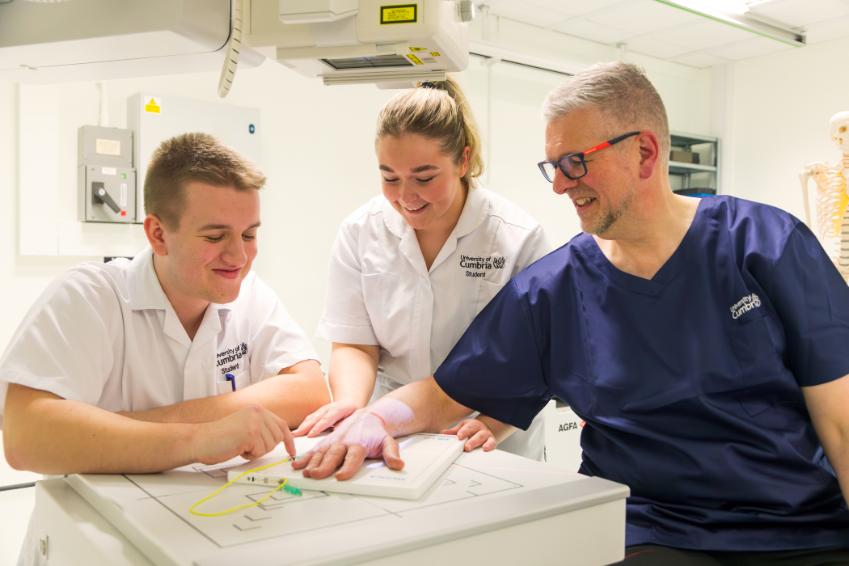BSc (Hons) - Diagnostic Radiography (Top-Up)
This programme allows qualified assistant practitioners working in the field of medical imaging to progress their existing qualification to a full BSc Honours Degree in Diagnostic Radiography. They will then be eligible to apply to the HCPC to enter their register as a Diagnostic Radiographer. It is intended for assistant practitioners who have already achieved a relevant foundation degree and have completed an AP radiographer bridging course.
The applicant must be working in a medical imaging department with the full support of their employer to undertake this course.

Course Overview
Students will continue to work as an employee at their place of work while undertaking this programme, with time being allocated by their employer to allow them to meet necessary academic and clinical competencies. This includes a minimum of 20% 'off-the-job' training time to cover both university study time and clinical skills outside of the student's usual scope of practice.
On this course you will...
- Gain knowledge and understanding of the continually changing and expanding field of medical diagnostic imaging.
- Learn in both academic and clinical settings with the support of expert practitioners and academics.
- Develop a professional attitude to the current working environment and an understanding of the dynamic and changing nature of clinical roles.
- Become a resilient, proficient communicator whose values are centred around effective and compassionate patient care.
- Further develop your ability to work as a critically reflective practitioner who engages in safe and effective practice.
Location
Lancaster Campus
Lancaster is the Red Rose heartland, a student haven full of history and culture. With iconic stone architecture, parkland, and a caring community, this is the place to get involved. The campus houses top-quality facilities tailored to the needs of life-savers, world changers, and future leaders.
Find out more
Find out more about studying with us
Attend an Open Day at Cumbria
An Open Day is your opportunity to explore one of 5 campuses, meet your lecturers, and find out how the University of Cumbria could become your new home.


.webp)


